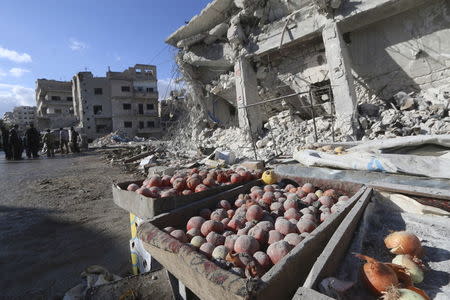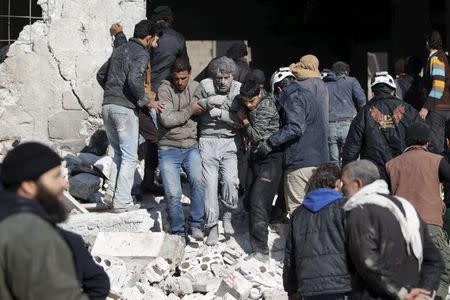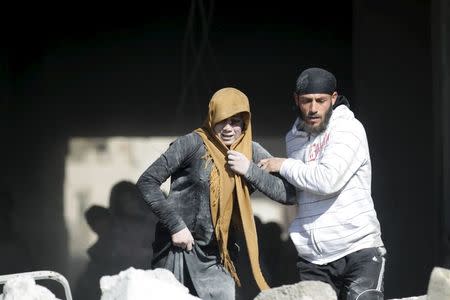Few Russian strikes in Syria are against Islamic State, U.S. official says
By Robin Emmott BRUSSELS (Reuters) - Only a third of Russia's air strikes in Syria are targeting Islamic State and its imprecise attacks are forcing the population to flee, fuelling Europe's refugee crisis, a senior U.S. official said on Saturday. Of the 5,000 air strikes carried out by Russia since it began its air offensive in Syria on Sept. 30, about 70 percent hit rebels opposed to President Bashar al-Assad, rather than supporting the efforts of the U.S-led coalition, the official told reporters in Brussels. Rescue workers and rights groups say Russia's bombing in Syria has killed scores of civilians at busy market places and in residential areas. Russia denies this. The Kremlin launched its air strikes saying it wanted to help Assad, its main Middle East ally, defeat Islamic State and other militant groups. "We are not convinced of what the Russian intentions are," the official said on condition of anonymity. "For a while, very few strikes were going against ISIL and after a lot of public condemnation they turned a number of strikes against ISIL," the official said, referring to Islamic State, the militant group that controls territory in Syria and Iraq. The U.S. official said Russia used fewer precision-guided munitions than the United States and its allies. "The Russian strikes that are not precise cause me great concern because I think there is an indirect correlation to the refugee flow," the official said. "It is not just the pressure it is putting on NATO and the EU, it is also the humanitarian cost," the official said. Amnesty International said last month that Moscow's actions had violated humanitarian law. Amnesty estimates at least 200 civilians were killed by Russian air strikes between Sept. 30 and Nov. 29, which Russia denies. Russia's Defence Ministry has repeatedly denied targeting civilians, saying it takes great care to avoid bombing residential areas. Syria's civil war which began in 2011 has driven 4.4 million Syrians into neighboring states from where many are trying to reach Europe. (Reporting by Robin Emmott; Editing by Raissa Kasolowsky)






